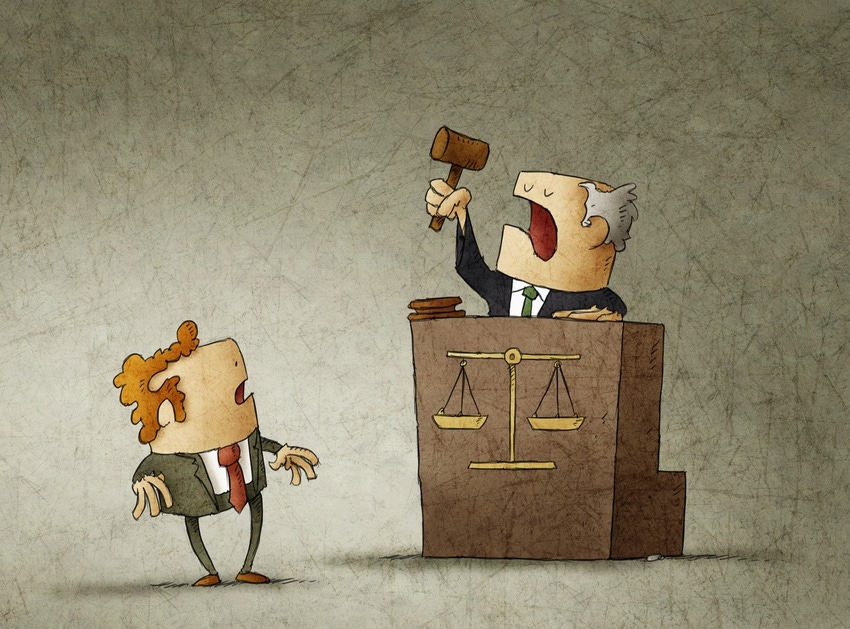The Federal Antimonopoly Service of the Russian Federation (FAS) has found Apple’s App Store is on the wrong side of antitrust rules, following a complaint from Kaspersky Lab.
August 11, 2020

The Federal Antimonopoly Service of the Russian Federation (FAS) has found Apple’s App Store is on the wrong side of antitrust rules, following a complaint from Kaspersky Lab.
The App Store is drawing a lot of negative attention in recent weeks, with the Kaspersky Lab complaint to the FAS just one of several antitrust sagas Apple is facing. The FAS ruling is of course not favourable to Apple, though there will be an appeal.
“Access to the App Store is the only possibility for application developers to distribute their products on the iOS operating system, and it is extremely important to create non-discriminatory conditions for market access to ensure competition,” said Aleksey Dotsenko, Deputy Head of the FAS Russia.
Part 1 of Article 10 of the Law on Protection of Competition in Russia defines anti-competitive behaviour as:
…actions (inaction) of an economic entity occupying a dominant position are prohibited, the result of which is or may be the prevention, restriction, elimination of competition and (or) infringement of the interests of other persons (business entities) in the field of entrepreneurial activity or indefinite circle of consumers.
As the App Store is the only legal means to distribute apps to iOS users in the country, Apple has been found wanting. The complaint from Kaspersky Lab focuses on two areas. Firstly, Apple restricted features of a parental control smartphone application from Kaspersky Lab, while simultaneously releasing its own. Secondly, Kaspersky Lab has claimed Apple can reject an app for the App Store, even if all criteria has been met.
The FAS agrees with the complaint from Kaspersky Lab, stating Apple has abused its market dominance. Apple will be issued an order to remedy the violations, however Apple should lodge an appeal in the meantime.
Elsewhere, Apple is facing additional antitrust probes with regard to the App Store.
Messaging application Telegram has filed a complaint with the European Commission suggesting the 30% commission charged by Apple to developers cannot be justified, while also claiming a ban on downloads from alternative channels is anticompetitive. Premium email app Hey had its listing on the App Store rejected because it collects subscriptions outside of the Apple platform, which prompted another complaint.
These two complaints follow an on-going investigation from European Commissioner for Competition Margrethe Vestager after Spotify and Rakuten questioned whether Apple should be able to charge 30% commission. The two internet companies suggest they would have to increase their subscription prices to make attractive margins, but as Apple’s rival services aren’t subject to the commission, it creates an uneven playing field.
The way the App Store is managed also came under scrutiny in the recent investigation launched by Congress in the US to understand whether the internet giants have too much power. This exchange between Apple CEO Tim Cook and US Senator Hank Johnson is quite interesting.
Johnson: Apple requires all app developers to use Apple’s payment processing system if those developers want to sell their goods or services to Apple users through Apple App Store, isn’t that correct?
Cook: That is correct
Johnson: And by processing payments for apps that you allow into the app store you collect their customer data and you use that data to inform whether or not it would be profitable for Apple to launch a competing app. Isn’t that correct?
Cook: Sir, 84% of the apps are charged nothing, the remaining 16% either pay 15% or 30% depending upon the specifics. If it is in the second year of a subscription, as an example, it only pays 15%.
Johnson: What is to stop Apple from increasing its commission to 50%?
Cook: Sir, we have never increased commissions in the store since the first day it operated in 2008
Johnson: There’s nothing to stop you from doing so is there?
Cook: No Sir, I disagree strongly with that. There is a competition for developers just like there is a competition for customers, and so the competition for developers they can write their apps for Android or Windows or Xbox or PlayStation. So we have fierce competition at the developer side and the customer side, which is essentially, it’s so competitive I would describe it as a street fight for market share in the smartphone business.
Johnson was on the right lines when pressing Cook but stopped short of a question which would have completely undermined Apple’s argument here. If Johnson had asked is iOS users are able to download applications on Apple devices from alternative sources, Cook would have to respond no. He would have to admit Apple has a monopoly on the distribution and monetization of apps in the iOS ecosystem. This would perhaps make US lawmakers very uncomfortable.
All of the internet giants are facing questions regarding their control of and influence in the digital economy, but Apple and the App Store in particular seem to be getting more attention. With the pressure mounting, it is becoming difficult to imagine the status quo remaining. We suspect it won’t be too long before Apple is forced to open up the App Store.
About the Author(s)
You May Also Like








.png?width=300&auto=webp&quality=80&disable=upscale)


_1.jpg?width=300&auto=webp&quality=80&disable=upscale)


.png?width=800&auto=webp&quality=80&disable=upscale)